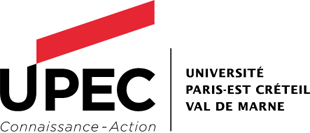The UPEC Space Campus (Campus Spatial de l'UPEC, CSU) offers innovative training programs at all levels in both fundamental (astrophysics, astrobiology, environmental science) and applied disciplines (mechanics, electronics, thermal physics, telecommunications, algorithmics, programming, management, and scientific mediation).
The CSU develops its activities in a network of other space campuses in the Paris region and across the country. It has also partnered with the most renowned institutions in space research such as the
Centre National d'Etudes Spatiales (CNES),
Cape Peninsula University of Technology (Cape Town, South Africa), and the
Virginia Space Grant Consortium (Virginia, United States), as well as with local and national industry partners.
Its aim is to train students to acquire a variety of skills so they can work in the space industry. Students will design small satellites–called CubeSats–with their control software, as well as manage projects themselves. Students will work in interdisciplinary teams and will have to demonstrate the autonomy needed to successfully complete their projects.
The Space Campus is also building a 1:1 scale functional model of the European Rosalind Franklin rover from the ExoMars mission. Students from a wide range of disciplines will work together on ambitious and motivating space projects. The Space Campus also aims to demonstrate the usefulness of innovative technologies for space applications by creating its own real space objects. To achieve this, the Space Campus works in collaboration with engineers from UPEC research laboratories, the Centre National d'Études Spatiales (CNES), and industry partners. The emphasis on research and development (R&D) enables us to better understand how new technologies such as additive manufacturing (3D printing) and innovative electronic components behave in space.
The Space Campus benefits from UPEC's interdisciplinary framework. It offers a wide range of courses (bachelor's degrees, IUT courses, master's degrees, PhDs, engineering schools, etc.) in a variety of fields (physics, chemistry, electronics, computer science, management, etc.).

